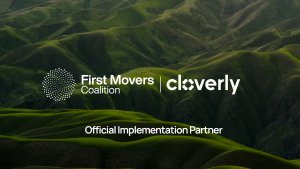In a significant step toward fostering a more transparent and accountable voluntary carbon market, California has enacted Assembly Bill 1305 (AB 1305) Voluntary Carbon Market Disclosures Act (VCMDA). This groundbreaking legislation, also known as California AB1305, mandates enhanced disclosure requirements for companies purchasing, using, or selling voluntary carbon offsets within the state. While these regulations may seem complex at first glance, they present an opportunity for businesses to not only demonstrate their commitment to environmental responsibility but also gain a competitive edge in the sustainability arena.
What is the California AB 1305 Voluntary Carbon Market Disclosures Act (VCMDA)?
California AB 1305 is one of three climate related rules that Governor Gavin Newsom signed into law on October 7, 2023, with a fourth piece of legislation still pending. The other two were Senate Bill 253 (SB 253) Climate Corporate Data Accountability Act and Senate Bill 261 (SB 261) Greenhouse Gases Climate-Related Financial Risk. These new mandates aim to enhance transparency and uniformity in climate-related reporting, as well as promote measures, including decarbonization, for reducing climate risk in the state.
Understanding the nuances of California AB 1305’s key provisions for buyers
AB 1305 focuses on ensuring that businesses operating in CA provide accurate information to their stakeholders regarding their carbon footprint reduction claims. The CA bill outlines specific disclosure requirements for companies that purchase or use voluntary carbon offsetsi and make carbon neutral or net zero claims in the state. Specifically, companies that claim that their business and/or product is carbon neutral, has achieved net zero emissions, or has made significant emissions reductions must disclose the following:
1. Carbon credit information: Companies must provide detailed information about the carbon credits they purchase or use, including the project developer, offset registry, project identification number, project type, methodology used for emissions reduction estimation, and whether third-party verification is available.
2. Emission reduction claims: Businesses must provide detailed information on how such claims were accomplished, interim progress toward the goal that’s being measured, and whether third-party verification of the data and claims is available. They may also need to include information on their science-based target and which sector methodology was used.
In both cases, the information must be publicly accessible on the company’s website and updated annually.
Impact of AB 1305 VCMDA on California businesses
California AB 1305 applies to a broad range of entities operating in California, including:
- ❇️Businesses that purchase or use carbon offsets within the state
- ❇️Carbon offset brokers and sellersi
- ❇️Carbon credit registriesi
- ❇️Businesses making carbon footprint reduction claims
- ❇️Organizations using carbon offsets to reach sustainability goals
Devising a strategic approach to California AB 1305 compliance
Navigating the complexities of AB 1305 VCMDA compliance requires a structured approach. Work with Cloverly’s ecosystem of carbon accounting partners to measure, track, and report your Scope 1, 2, and 3 emissions transparently per the guidelines noted in CA bill AB 1305. Then take the following steps to ensure that the carbon offsets you purchase align with the requirements:
1. Conduct a thorough carbon offset inventory: Begin by identifying all carbon credits purchased or used within the past year. Gather detailed information about each carbon credit, including the project developer, offset registry, project identification number, project type, methodology used for emissions reduction estimation, and third-party verification status.
2. Establish compliance procedures: Develop clear internal policies and procedures for carbon offset purchases, usage, and disclosure. These procedures should outline the responsibilities of designated personnel, document retention protocols, and regular compliance audits.
3. Leverage technology for streamlined compliance: Utilize technology solutions to streamline data collection, track carbon credit usage, and generate comprehensive disclosure reports.
4. Seek expert guidance: Consider partnering with carbon offset experts like Cloverly who can provide tailored advice on compliance strategies, data management, and disclosure best practices.
Embracing AB 1305 as an opportunity for sustainability leadership
The new CA bill AB 1305 VCMDA presents an opportunity for businesses to showcase their environmental leadership and gain a competitive advantage in the growing sustainability market. By embracing transparency and accountability in carbon offsetting practices, companies can:
1. Build trust: Demonstrating a genuine commitment to carbon offsetting practices fosters trust, increasing brand loyalty, and attracting environmentally conscious customers.
2. Attract environmentally conscious investors: Investors are increasingly seeking opportunities to support companies that demonstrate a commitment to sustainability. By complying with AB 1305, businesses position themselves as attractive investment prospects.
3. Gain a leadership edge: Embracing AB 1305’s principles positions businesses as leaders in the transition to a low-carbon economy, enhancing their reputation and gaining a competitive edge in the evolving market.
Cloverly: Empowering businesses to comply with AB 1305 VCMDA
Cloverly, a pioneering provider of climate action solutions, is committed to helping businesses navigate the complexities of AB 1305 compliance. By partnering with Cloverly, companies can leverage our expertise, resources, and streamlined processes to:
1. Access transparent carbon credit data: Cloverly’s platform provides comprehensive information about each carbon credit, including all details required under CA bill AB 1305. This unwavering commitment to transparency empowers businesses to make informed purchasing decisions, confidently meet disclosure obligations, and build trust with customers, investors, and stakeholders.
2. Streamline compliance processes: Cloverly simplifies compliance by providing readily available documentation and data to support disclosure requirements. This streamlined approach saves companies time and resources, allowing them to focus on their core business operations while ensuring adherence to the new regulations.
3. Enhance sustainability credibility: Cloverly employs a robust carbon credit quality evaluation and risk management framework to help companies identify and purchase high-quality credits that deliver on their stated climate and social impacts. Partnering with Cloverly demonstrates a company’s unwavering commitment to rigorous carbon offsetting practices—a commitment that bodes well among customers, investors, and other stakeholders. It also helps position a company as a leader in the transition to a low-carbon economy.
In conclusion, AB 1305 VCMDA marks a significant step toward a more transparent and accountable VCM in California. By partnering with Cloverly, businesses can effectively comply with these regulations, enhance their sustainability credentials, and gain a competitive advantage in the growing market for environmentally responsible practices. Together, we can create a more sustainable future for our planet and its inhabitants.
To see how carbon credits can help ensure regulatory compliance while generating business value, download the white paper: 7 Benefits of Carbon Credits: How to Make the Business Case
iNote: Businesses that market or sell voluntary carbon offsets in the state have different disclosure requirements than buyers. See the legal text for more details.





